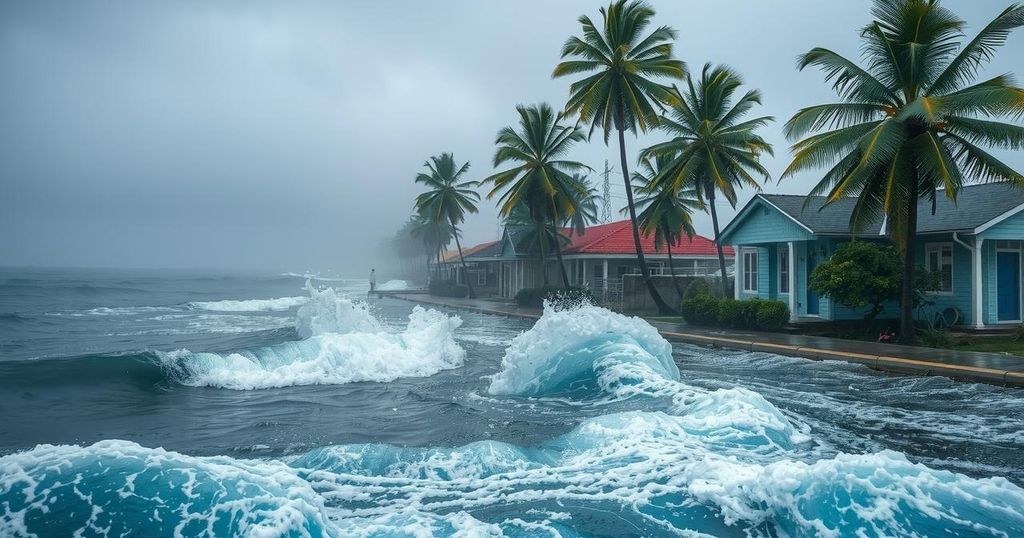Mozambique Faces Severe Humanitarian Crisis Amid Conflict and Climate Challenges
Mozambique is experiencing a severe humanitarian crisis with 2.8 million people facing acute food insecurity. The situation has worsened due to violent conflict, particularly in Cabo Delgado Province, causing significant internal displacement. Adverse climatic events such as drought and flooding also contribute to the crisis, necessitating urgent humanitarian assistance for almost 2.3 million people in need.
As of August 2024, Mozambique is facing a critical humanitarian crisis, with approximately 2.8 million people experiencing Crisis level food insecurity, classified as IPC 3. This alarming situation arises from a combination of factors, including the intensification of non-state armed group (NSAG) violence and the adverse impacts of climate change, particularly El Niño-related droughts and flooding. Reports from the United Nations indicate that an estimated 2.3 million individuals require urgent humanitarian assistance. Furthermore, the internal conflict in Cabo Delgado Province has displaced over 576,000 individuals due to violence, exacerbating the country’s already frail food security landscape.
The situation has significantly deteriorated since late July 2024, where data illustrates that over 80 percent of the estimated 710,000 internally displaced persons (IDPs) are a direct result of NSAG-related violence, while the remaining 20 percent have been displaced by extreme weather events. Moreover, as of July 2024, approximately 611,000 individuals have returned to their areas of origin. The combination of violence and natural disasters has led to severe protection incidents, including abductions, family separations, and heightened risks of sexual violence, particularly within the conflict-affected communities in northern Mozambique.
In summary, the complex emergency in Mozambique is characterized by significant food insecurity and widespread displacement driven by both conflict and climatic factors. The international community must prioritize support for humanitarian efforts to alleviate the suffering of affected populations and enhance safety and security in the region.
The situation in Mozambique involves multiple interlinked crises that have led to high levels of food insecurity and displacement. The region has been grappling with the consequences of El Niño, which has caused severe droughts in some areas, while flooding has affected others, complicating the already dire humanitarian conditions. The violence perpetrated by non-state armed groups, particularly in Cabo Delgado Province, has contributed significantly to the number of internally displaced persons. As existing conditions worsen, humanitarian assistance becomes increasingly critical to address the needs of millions.
The humanitarian crisis in Mozambique is a pressing issue that requires immediate attention and action from both government bodies and international organizations. With millions affected by acute food insecurity and violence-induced displacement, the necessity for coordinated humanitarian assistance is paramount. Effective strategies must be implemented to address the underlying factors contributing to this crisis, ensuring the safety and well-being of Mozambique’s vulnerable populations while also fostering long-term stability in the region.
Original Source: reliefweb.int




Post Comment